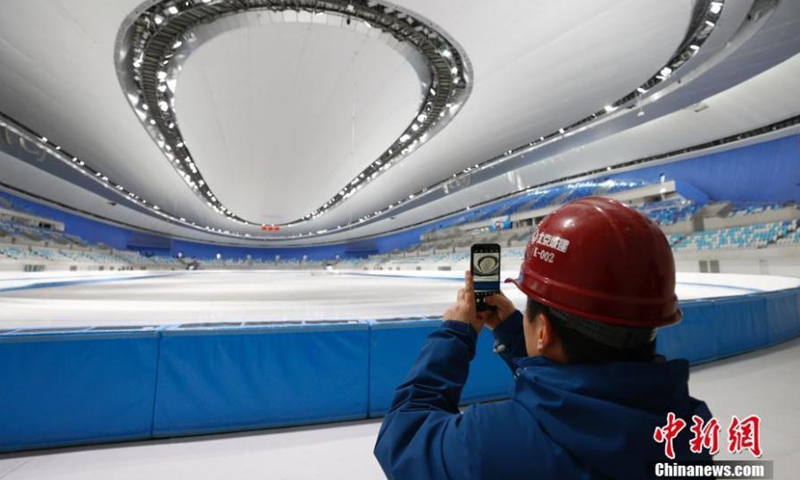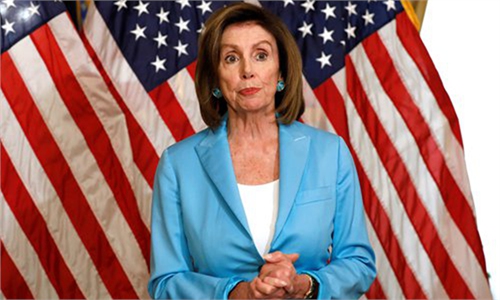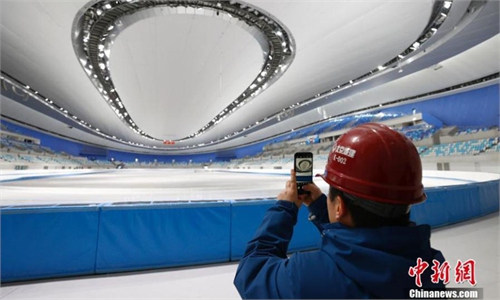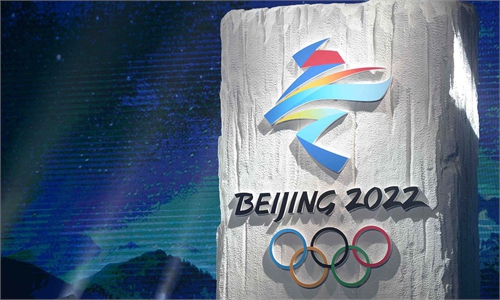
Photo shows a construction worker taking photos at the National Speed Skating Oval in Beijing, capital of China, Jan. 28, 2021. The ice-making work at the National Speed Skating Oval in Beijing, also known as the "Ice Ribbon", was completed, meaning the iconic venue for the 2022 Winter Olympics is now ready for test competitions.Photo:China News Service
Members of a US congressional commission at a Tuesday hearing blasted US-based corporate sponsors of the 2022 Winter Olympics in Beijing, urging them to pull their sponsorship of the event.When representatives from Airbnb, Coca-Cola, Intel, Visa Inc and Procter & Gamble declined to weigh in on the 2022 Winter Olympics at the hearing, US lawmakers called the testimony "pathetic and disgraceful," accusing US companies of turning a blind eye to the alleged human rights violations in China's Xinjiang region, according to Reuters on Wednesday.
Some Western anti-China forces are trying their best to push for a boycott of the 2022 Beijing Winter Olympics, aiming to further incite rhetoric over the widely-debunked claims regarding Xinjiang-related affairs by taking advantage of the global publicity opportunity at the Olympics. Its essence is to discredit and encircle China by politicizing the important sports event.
Such attempt to call for a boycott of the 2022 Winter Olympics, which not only goes against the Olympic spirit, but also hurts the right of athletes that are looking forward to the competing opportunity, will never succeed.
Despite US lawmakers' accusations, the fact that none of the multinational companies have withdrawn their sponsorship already shows the politicization of sports is repugnant and unpopular.
It is crystal clear to all that the politically motivated boycott risks intensifying conflicts in economic and trade cooperation as well as foreign companies' businesses interests in China. This is because the allegations of the so-called "forced labor" and "human rights abuses" are lies of the century concocted by anti-China forces.
All sponsorship deals were signed between multinationals and the International Olympic Committee and the Olympic committees of countries, which should by no means be held hostage by political ploy. While some Western politicians accused companies of pursuing a profit-oriented business as usual approach, they cannot explain why companies should be led by the nose by some baseless accusations that may be only in line with someone's political interests.
In fact, for multinational sponsors, dealing with the political pressure amid the current geopolitical environment will be a test to their political wisdom and judgment. Sponsoring the Olympics is not about endorsing China or taking a political stance, it is about executing a marketing campaign on a global stage. But if American businesses withdraw their sponsorship, it would point to the risks of losing market shares and influence to their competitors. It is conceivable that rivals that compete with US businesses are looking forward to such an opportunity to enter or expand their shares in the global market.
If US politicians continue to pursue the attempt to politicize sports and business cooperation, they will end up undermining US enterprises' international influence. In the run-up to the 2022 Winter Olympics, while political boycott plot won't stop, companies need to avoid being carried away.



